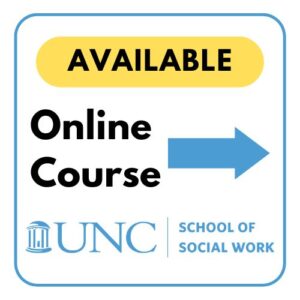Format: Self-paced / asynchronous program
Engage with this recorded program on your schedule.
 CE: 4 CEs total, read for more information on CEs
CE: 4 CEs total, read for more information on CEs
Fee: $52, read for more information on fees and scholarships
Description:
How did you learn what you know and how to best impart this to supervisees? In this workshop, Marilyn Ghezzi draws from her years of experience as a therapist, supervisor, field instructor, and classroom teacher to impart strategies for effective supervision. She will focus on transtheoretical approaches and common factors in psychotherapy, especially the use of the therapeutic relationship. Participants will learn how to help students and new therapists understand theory, how to make sense of the dizzying array of theories and psychotherapies, how to use theory to build a case conceptualization and use that conceptualization to develop and carry out interventions. The workshop will also model and engage participants to create a more experiential, participatory and relationship-focused supervision approach to facilitate emotional and relational development within supervision that is essential to becoming an effective psychotherapist. Participants will have opportunities to practice with therapeutic responsiveness, which attends to what is occurring in the supervision process itself and how this may reverberate into supervisee’s work with client. Numerous case examples will be used to illustrate key points.

Trainer: Marilyn Ghezzi, MSW, LCSW, is a clinical associate professor at the University of North Carolina at Chapel Hill School of Social Work. She received her BA and MSW from UNC-Chapel Hill. Ghezzi joined the School after 20 years of practice experience in the public mental health system. She draws on this experience to enhance her teaching of MSW students in courses on mental health theory and practice, including group work, brief treatment, dialectical behavior therapy, and differential diagnosis. A frequent recipient of teaching awards, she has won both the Dean’s Award for Teaching Excellence and the “Most Outstanding Faculty Member” (selected by graduating MSW class) multiple times and received the Distinguished Teaching Award for Post-Baccalaureate Instruction, an honor given to only four professors a year from the entire UNC-CH system. Ghezzi has continued to supervise students and trainees through the UNC SSW Field Office, Student Health Action Coalition (SHAC), and the UNC Department of Psychology and Neuroscience Community Clinic. Ghezzi has been a co-investigator on the Mental Health Specialty Probation study which offers a novel approach to reduce recidivism through providing additional training and consultation for probation officers.
Learning Objectives:
By end of workshop, participants will be able to
- Identify methods to teach case conceptualization to supervisees.
- Define dual awareness in supervision, and practice engaging in a deliberate shift between focus on supervisee’s relationship with clients and evolving relationship within supervision.
- Explain at least 2 reasons why understanding common factors and transtheoretical approaches improve supervisees’ understanding of psychotherapy.
- Explain how to help supervisees use case conceptualization to develop and carry out interventions.
References:
Aasheim, L. (2012). Practical supervision for counselors: An experiential guide. Springer Publishing.
Alonso, A. (2000). On being skilled and deskilled as a psychotherapy supervisor. Journal of Psychotherapy Practice and Research, 9 (1), 55-61.
Bennett, C.S. (2008). Attachment-informed supervision for social work field education. Clinical Social Work Journal, 36 (1), 97-107.
Bodenheimer, D. (October, 2015). Real world clinical social work blog: the myth of the perfect intervention. https://www.socialworker.com/feature-articles/real-world-clinical-sw/real-world-clinical-social-workblog-myth-perfect-intervention/
Borden, W. (Ed.), (2010). Reshaping theory in contemporary social work: Toward a critical pluralism in clinical practice. Columbia University Press.
Dewan, M.J., Steenbarger, B.N., & Greenberg, R.P. (Eds.). (2018). The art and science of brief psychotherapies: A practitioner’s guide (3rd ed.). Washington, D.C.: American Psychiatric Press
Fleuridas, C. & Krafcik, D. (2019). Beyond four forces: The evolution of psychotherapy. SAGE Open, 9(1), doi.org/10.1177/2158244018824492
Gibson, M.F. (2012). Opening up: Therapist self-disclosure in theory, research and practice. Clinical Social Work Journal, 40, 287-296.
Greenberg, L. S., Rice, L. N., & Elliott, R. (1993). Facilitating emotional change: The moment-by-moment process. New York: Guilford Press.